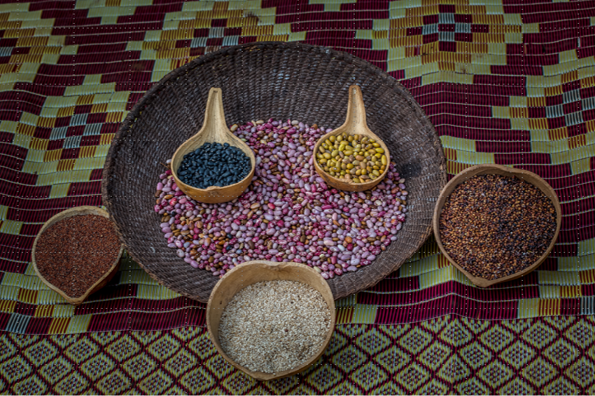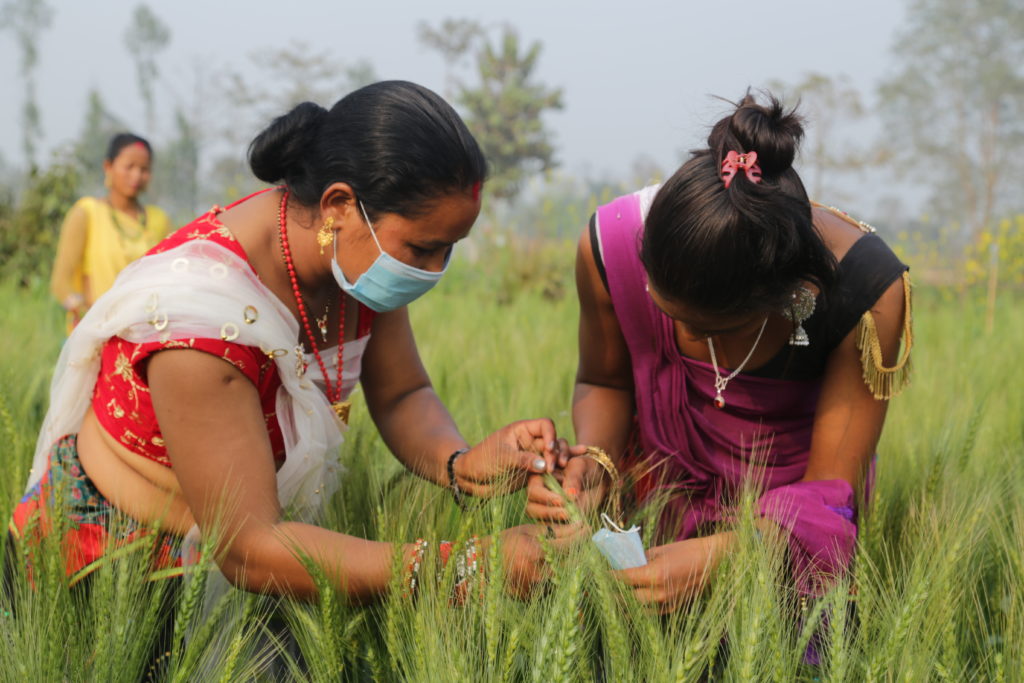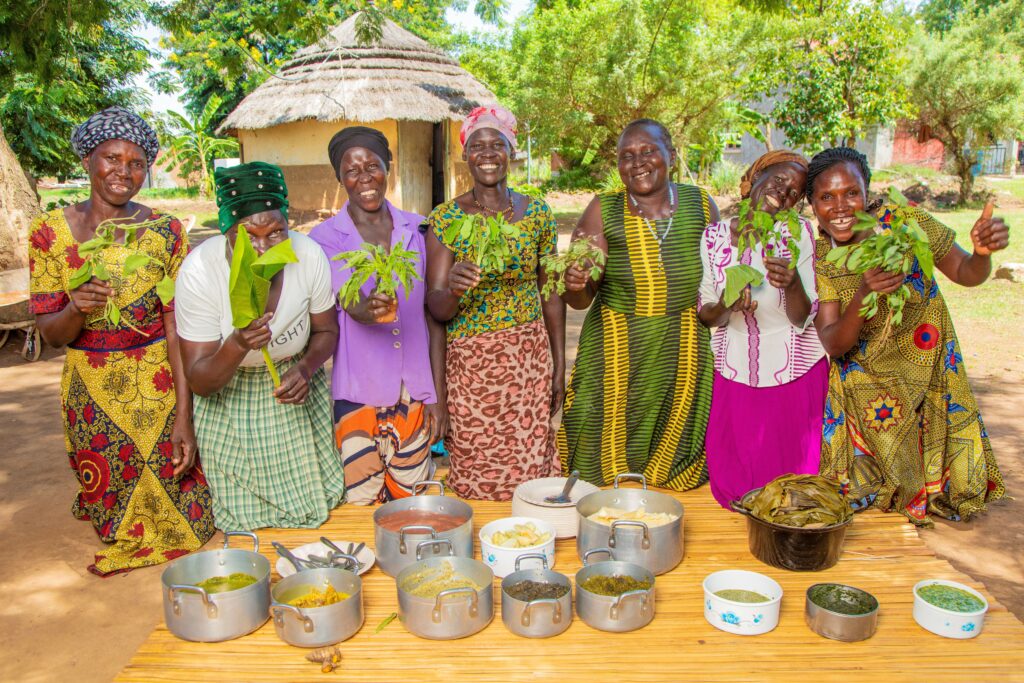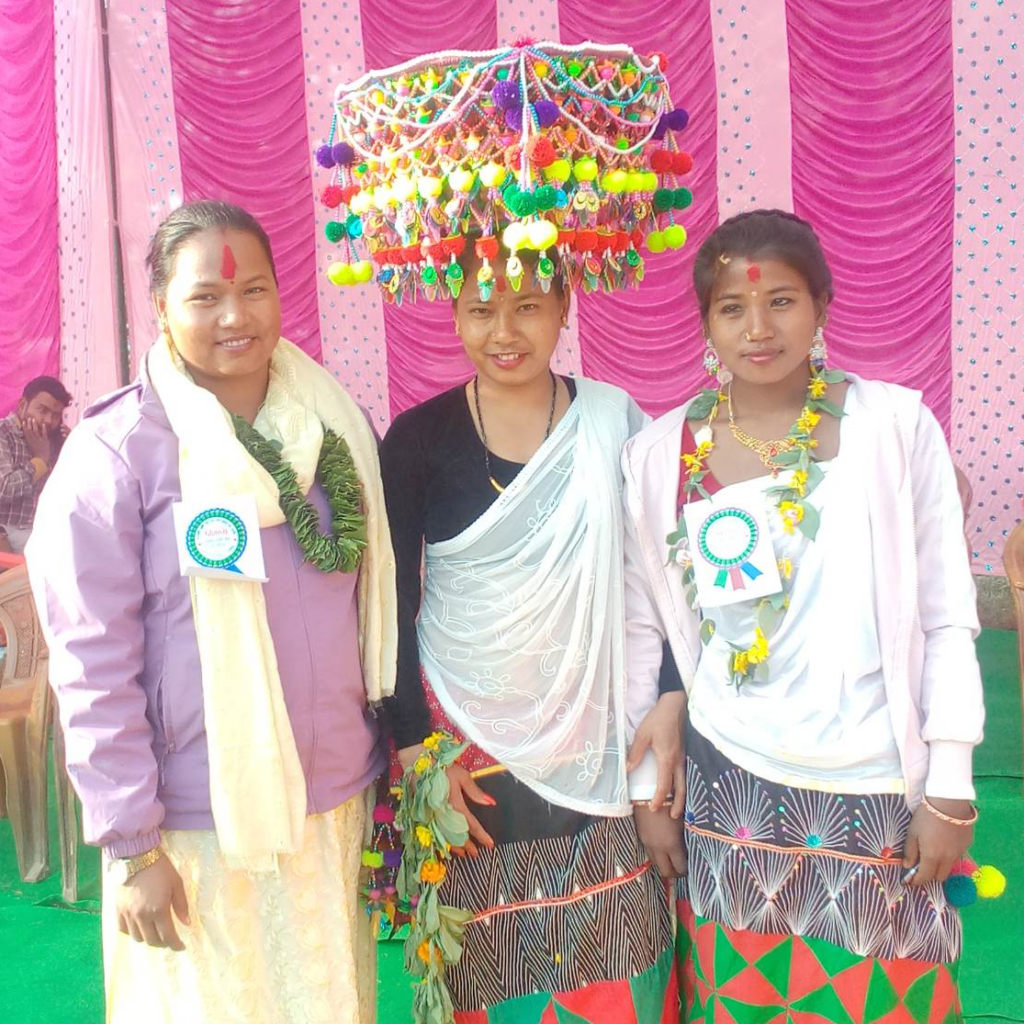“Change is the end result of all true learning” -Leo Buscaglia
The journey of learning that began in the second phase of the Sowing Diversity = Harvesting Security (SD=HS) program for Zambia has come to an end by the year 2023. Since 2019 Zambia has strived to achieve change through learning, unlearning, and relearning together with the smallholder farmers in the Farmer Field Schools (FFS), researchers from public institutions, academia, and other civil society organizations. The program has strived for changes both at the global and local levels within participating communities.
The learning to enable this change has happened through the Farmer Field Schools (FFS) as a vehicle for experimentation and innovation. A total of 73 FFS with a focus on Participatory Plant Breeding (PPB) have been mobilized, among them 10 FFS emphasize seed production and marketing and 38 FFS are on nutrition and local food plants. These FFS have enabled changes at the community, institutional and individual levels. During an integrated training of trainers held for the facilitators and master trainers, participants highlighted the following changes which have been identified after 5 years of program implementation. Participants realized that they are more confident now and have developed skills to communicate with the relevant stakeholders as well as to facilitate meetings at different levels. They are now able to investigate and critically analyze the issues affecting their communities and find solutions through experimentation. Facilitators also highlighted that there was collective action and community cohesion due to frequent interactions in the Farmer Field Schools.
Furthermore, facilitators have reported that their improved comprehension of the significance of plant genetic resources and their effective management has led to several positive outcomes. These include heightened crop diversity and utilization, increased household income for farmer field schools involved in commercialization, improved nutritional levels due to expanded crop diversity, and enhanced community resilience to climate adaptation.
As part of the program’s concluding activities and in recognition of the valuable human capital involved, a total of 75 facilitators and master trainers successfully graduated in participatory plant breeding methods, farmer seed enterprises, and local food plants and nutrition. The graduation ceremony garnered the presence of a diverse group of stakeholders and partners. Among those in attendance were Oxfam Zambia country office, Zambia Alliance for Agroecology and Agrobiodiversity (ZAAB), representatives from SIDA local office, Kasisi Agricultural Training Center (KATC), Care International, Caritas Zambia, FIAN International Zambia, Zambia Agricultural Research Institute (ZARI), Seed Control and Certification Institute (SCCI), National Food and Nutrition Commission (NFNC), National Genebank, the Ministry of Agriculture through Extension Services, and the Ministry of Health via the Nutrition Department.
The farmers expressed their delight upon receiving their certificates and voiced their hope for the project’s continuation into the next phase. They also called upon the government to consider farmer-developed varieties in national seed policy documents.


Bevies Mushimbwa, a farmer facilitator shared at the ceremony, “Farmer seeds are very important because of their diverse nature and hence offer different nutritional benefits. We, the smallholder farmers, are the beneficiaries, we are the largest percentage who depend on farmer seeds which are cheap, and we can sell, share and exchange. The PPB has benefited us; we are even expecting some varieties to be released. Some of our local varieties were contaminated; the aspect of enhancement helped us to restore the traits of the local seeds which were contaminated by the hybrids. We also did seed production and marketing, we discovered that there was a high demand for farmer varieties, therefore the need to start multiplying the seed. Due to the seed policies that are not in our favour, we have been engaging with ZARI and SCCI so that these varieties can be registered to sell commercially. We want our farmer varieties to be supported by seed laws and not restricted. These are our rights as farmers, and we want government support for our rights. The local seeds which are diverse in nature can help Zambia attain its 2030 vision of having a food and nutrition-secure nation.”
Furthermore, Joyce Mumba, added that the SD=HS program was very beneficial to her and other women in the community, especially in improving the nutrition status of the children.

“The project has helped us a lot in the sense that farmers have started adopting conservative agricultural practices that are helping us cope with the effects of climate change. The use of local food plants has been put into practice to reduce the malnutrition cases in our district,” she said.
In the remarks of the Community Technology Development Trust (CTDT) Director, Charles Nkhoma at this ceremony, he highlighted the approaches of capacity building that have been initiated throughout the program implementation as a process of capacity enhancement. The farmers have become experts now and are confident in sharing their experiences and challenges with the government stakeholders. He appreciated the farmers who have become the leaders in their community throughout the process over the years. The women farmers were also not sitting behind rather they had proven their leadership skills and capacity in the community along with the men farmers.
Furthermore, he added that he believes the community would be able to carry the work forward as the program comes to an end. Because the farmers learned to produce seed which is beneficial for them. Those who were engaged in developing their own varieties would be able to share their learning with others to benefit others as well.

“We believe that these activities will continue with the support of CTDT. We are optimistic about getting funds to continue our learning and achievements for the next five years, as we did in the last five years. The advantage for the next five years is that this time we do not need to start from scratch but improve based on what we achieved in last years,” he said.
Assistant Director, Bruce Chulu addressed that SCCI fully supported the program and staff had been part of the capacity-building process. SCCI inspectors inspected the crop in the field to ensure that farmers are aligned with the guidelines. He urged the farmers to expand and to continue producing more quality seeds for sale. He looked forward to seeing branded seeds. He congratulated the farmers who graduated. During his concluding remarks, he ensured continuing the support of SCCI to revise both seed and plant variety protection laws. He assured the participants that SCCI will closely work with CTDT and farmers to include their inputs while revisiting the laws.









